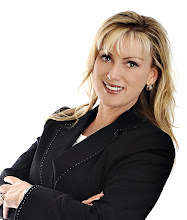by Jann Swanson
FHA
Looks to Shore Up Finances with New MIP Changes
Jan 30 2013, 2:45PM
Federal
Housing Administration Commissioner Carol Galante has just announced several significant
changes to FHA requirements, processes, and fees in an ongoing effort by
the agency to shore up its Mutual Mortgage Insurance Fund (MMI Fund.) The first
change - the consolidation of FHA's Standard Fixed-Rate Home Equity Conversion
Mortgage (HECM) with its Saver Fixed Rate HECM - was officially announced
today. HECM is commonly referred to as a
reverse mortgage and is available only to homeowners over the age of
62.
FHA
said that the Fixed Rate Standard HECM pricing option currently represents a
large majority of the loans insured through FHA's HECM program and is
responsible for placing significant stress on the MMI Fund. To preserve the
program as a financial option for aging homeowners FHA will make the HECM Fixed
Rate Saver the only pricing option available to borrowers who seek a fixed
interest rate mortgage. Using the Fixed Rate Saver for fixed
rate mortgages will significantly lower the borrower's upfront
closing costs while permitting a smaller pay out than the HECM Fixed Rate
Standard product, thereby reducing risks to the Mutual Mortgage Insurance Fund.
This change will be effective for
FHA case numbers assigned on or after April 1, 2013.
Other changes for which official announcements will be forthcoming
over the next few days are:
- An increase
in annual mortgage insurance
premiums (MIP) on most mortgages by 10 basis points or 0.10
percent. Premiums
on jumbo mortgages with balances of $625,000 or larger will increase by 5
basis points or 0.05 percent. This will bring jumbo mortgage premiums up
to the maximum premium authorized by Congress. These premium increases
exclude certain streamline
refinance transactions.
- FHA will reverse its existing policy of
cancelling MIP on loans when the outstanding principal balances reached 78
percent of the original balance. Because FHA remains obligated to insure 100 percent
of the outstanding loan balance for the life of the loan, homeowners will
now be required to maintain principal payments over that period as well.
FHA's Office of Risk Management and Regulatory Affairs estimates that the
MMI Fund has foregone billions of dollars in premium revenue on mortgages
endorsed from 2010 through 2012 because of this automatic cancellation
policy.
- FHA will require lenders to manually
underwrite loans for which borrowers have a decision credit
score below 620 and a total debt-to-income (DTI) ratio greater
than 43 percent. Lenders will be required to document compensating factors that
support the underwriting decision to approve loans where these parameters
are exceeded, using FHA manual underwriting and compensating factor
guidelines.
- FHA will
propose an increase in the minimum
down payments for jumbo loans from 3.5 to 5 percent. The
proposal will be published in the Federal Register within the next
few days.
- FHA will step up its enforcement efforts
for FHA-approved lenders with regard to aggressive marketing to borrowers
with previous foreclosures. Borrowers are currently able to access FHA-insured
financing no sooner than three years after they have experienced a
foreclosure, but only if they have re-established good credit and qualify
for an FHA loan in accordance with FHA's fully documented underwriting
requirements. It has come to FHA's attention that a few lenders are
inappropriately advertising and soliciting borrowers with the false
pretense that they can somehow "automatically" qualify for an
FHA-insured mortgage three years after their foreclosure. FHA will work
with other federal agencies to address such false advertising by non-FHA-approved
entities.
- Finally, as
discussed in its Annual Report to Congress, FHA is also committed to
structuring a new housing
counseling initiative that would apply to a number of borrower
classifications, including borrowers with previous foreclosures.
"These
are essential and appropriate measures to manage and protect FHA's
single-family insurance programs" said Galante. "In addition to
protecting the MMI Fund, these changes will encourage the return of private
capital to the housing market, and make sure FHA remains a vital source of
affordable and sustainable mortgage financing for future generations of
American homebuyers."
For a copy of the entire HUD report, please email me at cindee@cindeestone.com



.jpg)